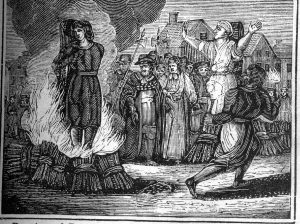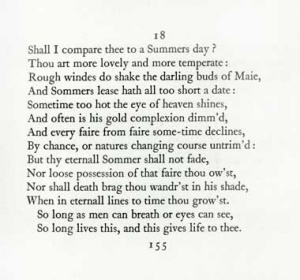As part of their English classes in Ty the 4O class did a self led research project on an author of their choosing.
Today we are presenting one of those pieces for you to enjoy.
Here is a presentation by Anne Seredina on Shakespeare.
Shakespeare
Anne Seredina
Index:
Shakespeare’s Life…………………………………………………………………………………………………
Early Life……………………………………..
Education……………….…………….……..
Family Life……….…………………………..
‘The Lost Years’……………………………..
Early 1590s……………..……………….…..
The Globe Theatre……………………………………………………………………………………………………
Shakespeare’s Death……………………………………………………………………………………………….
Influences on Shakespeare’s Writing…………………………………………………………………….
Shakespeare’s Work……………..…….
Shakespeare’s Influence Today……
Historical Context……….…….….……..
Shakespeare’s Influences……………..
Shakespeare’s Most Famous Work…………………………………………………………………………….
Shakespeare’s Poetry………………………………………………………………….…………………….…….
Early Life
William Shakespeare is believed to have been born on April 23rd, 1564( and was baptized on April 26h o that year) in Stratford-upon- Avon, Warwickshire to parents John and Mary Shakespeare . He grew up with brothers Gilbert, Richard, and Richmond and sisters Anne and Joan.
Education
Shakespeare went to King Edward VI School and due to the fact that his father was a bailiff he is said to have received free tuition. Other than this information, we do not have any more records of Shakespeare’s education. Many actually believe that Shakespeare didn’t exist (due to the lack of evidence of his school life) .
Family Life
On November 28th, 1582, William Shakespeare married Anne Hathaway in Worcester, Canterbury Province. Anne Hathaway was from a small village called Shottery, just one mile away from Stratford. She grew up on her father’s farm (which is now a major tourist attraction). When her father died, he left her a sum of money under the name ‘Agnes’, leading historians to believe that Anne prefered to be called Agnes.
When Shakespeare and Hathaway got married he was 18 and she was 26. It is believed that Shakespeare was forced into this marriage because Hathaway’s family found out that he was involved with another woman, while at the same time Hathaway was already pregnant with their daughter Susanna ( born in May 1583). Later, in 1585, twins Hamnet and Judith were born. Hamnet later died at the age of 11 of unknown causes.
‘The Lost Years’
This is a period of seven years after the birth of the twins in 1585, when no records of Shakespeare’s life were taken. Historians believe that he was working as an assistant schoolmaster in Lancashire.
Shakespeare moved to London in ‘51 to become an actor. During these years, records show that Shakespeare was a managing partner in an acting company in London called Lord Chamberlain’s Men. Following the crowning of King James I in 1603, the company name was changed to the King’s Men. Records show that the company was highly successful.
Globe Theatre
This was the theatre that Shakespeare built with the help of the King’s Men company in 1599. The first production that was put on in the Globe Theater was the play ‘Henry V’. It was made of timber and during a performance of Henry VII a theatrical canon was misfired, setting the timber beams on fire. The theatre was burned down by a fire on June 29th 1613 but a replacement was built on the same site about a year later. A white flag on top of the roof signaled that there would be a play on that day.
Shakespeare’s Death
William Shakespeare is believed to have died on his 52nd birthday ( April 25th, 1616). In the diary of John Ward (the Vicar of the Holy Trinity Church, where Shakespeare was buried) it says that ‘’Shakespeare, Drayton and Ben Johnson had a merry meeting and it seems drank too hard, for Shakespeare died of a fever there contracted’’.
In Shakespeare’s will, most of his possessions were left to his eldest daughter, Susanne. His wife, Anne, was entitled to a third of his estate but instead he left her the ‘second-best-bed’. Historians say that this refers to the ‘marital bed’ (the bed that belongs to the master and mistress of the house).
Shakespeare’s will:
Shakespeare’s Works
Comedies:
- All’s Well that Ends Well
- As You Like It
- Comedy of Errors
- Measure of Measure
- Midsummer Night’s Dream
- Taming of the Shrew
- Much Ado About Nothing
- Twelfth Night
- Merchant of Venice
Tragedies:
- Julius Caesar
- Hamlet
- Macbeth
- Othello
- Romeo and Juliet
- King Lear
Histories:
Shakespeare’s Influence on Language
Shakespeare had an enormous vocabulary, it is estimated at somewhere between 17,000 and 34,000 words when the average person has around 15,000 words in their vocabulary!
Shakespeare had a massive influence on the English language. Here are some phrases that may be part of your everyday language that Shakespeare invented :
- I couldn’t sleep a wink.
- As dead as a doornail.
- Tower of strength.
- They hoodwinked us.
- We’d better lie low for a while.
- As constant as the Northern Star.
- It’s all Greek to me.
Here are just a few words that he invented:
- Accommodation
- Assassination
- Dexterously
- Dislocate
- Obscene
- Gloomy
- Hurry
- Lonely
Shakespeare lived in the Elizabethan era (named after Queen Elizabeth who ruled England from 1558- 1603)
During this era, people appreciated poetry and theater was seen as a lower class form of entertainment most of the time.
Shakespeare’s Influences
From about 1560- 1603 hundreds of women were burned and executed because they were accused of witchcraft. They believed that witches could make you have visions when they looked at you, they had a lack of fear and were believed to have invited demons to possess their bodies. Shakespeare’s audience were Christian people who were all fascinated by the idea of witchcraft, so Shakespeare played this to his strengths and often included magic and witches in his plays. This was so the audience would be more interested in the plays.
An illustration where a ‘witch’ is being burned at the steak:
Shakespeare’s Most Famous Work
Romeo and Juliet
Set in Verona, Italy, two families, the Montagues and Capulets, are in a seemingly endless feud with each other. A feast at the Capulet mansion brings Romeo and Juliet together by chance. This plays follows the romance and tragedy that happens afterwards.
Macbeth
Once loyal to king Duncan, Macbeth hears a prophecy that he will become king. Overcome by greed and encouraged by his wife, he kills the King and takes the throne. The play follows Macbeth’s rise to the throne and his actions to stay in power.
The Tempest
Prospero ( once Duke of Milan but overthrown by his brother Antonio) has been stranded on an island with his daughter, Miranda, for twelve years. A boat passing by holds Prospero’s brother, Antonio, so Prospero cast a spell and causes a storm to shipwreck Antonio and everyone else on the boat. The play follows Prospero’s plans to regain his title as the Duke of Milan.
The Merchant of Venice
Bassanio wants to travel to belmont in order to woo Portia. His friend Antonio, who is a wealthy merchant, asks jewish moneylender Shylock to give Bassanio a loan because all of Bassanio’s wealth is invested in ships that are out at sea. Shylock agrees to give him the loan, but if Bassanio forfeits the loan he has to give Shylock a pound of his own flesh. The play follows the events after the agreement.
Hamlet
Hamlet returns home from college to find that his father has died and that his mother has already remarried… his uncle. A ghost tells Hamlet that his father was murdered by his uncle , Claudius. The play follows Hamlet’s journey to discovering who his father’s murderer is.
Shakespeare’s Poetry
Shakespeare wrote 154 sonnets. Almost all of them are love poems.
A Shakespearean sonnet consists of:
Three quatrains (four-line stanzas) and an ending couplet (two-line stanza). The metre is Iambic Pentameter and the rhyming scheme is ABAB CDCD EFEF GG.
Shakespeare’s sonnets from 1- 126 are addressed to a beautiful young man. Sonnets 127- 154 are addressed to a ‘dark lady’. Shakespeare reveals that she is unfaithful and evil, but that he is too invested in her that he cannot leave her.



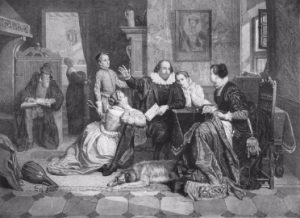
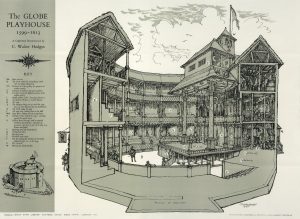
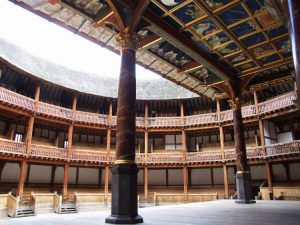
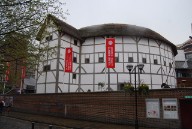
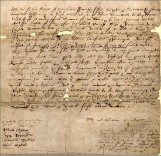

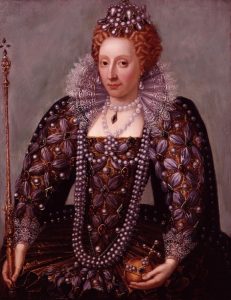 Queen Elizabeth
Queen Elizabeth